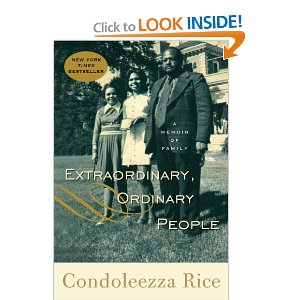On one occasion when Dr. Rice was giving a course (on diplomacy) in Japan, she was congratulated by the organizer for her good job, saying “…it’s good for Japanese people to know that not all Black people are stupid.”
Question for Group Discussion. How often have you heard similar backhanded compliments, or worse, either as a victim (Black) or as a witness (White)? What were your feelings? How did you respond?
On another occasion, Prof. Rice was participating in a seminar series at Harvard. She was staying with a friend in Sudbury (a suburb of Boston). While she was there alone, the security alarm went off, summoning the police. She recounts how she paniced at the thought of confronting the police. They would, she feared, instinctively believe she was the burgler. Would they believe her if she said she was a visiting friend? She said she decided that she would say that she was the maid. Fortunately, the friends arrived home before the police arrived.
Questions for Group Discussion: For African American (A-A) attenders, How often have you been taken for less than what you are? -or – for White attenders, How often have you made an incorrect assumption about a person of color clearly based on stereotypical thinking? What were your feelings? How did you respond?
A third incident she recounts also occurred in the Boston area when she was being ‘prospected’ for a position at MIT. Her driver, an MIT staffperson, was introducing her to the area, showing her where “… the Italians live, where the Jews live, where the Irish live…” She was waiting for him to show her where the Black people live. It didn’t go that far, but she came away with the feeling that on matters of racial integration, Boston has a long way to go.
Questions for Discussion: For A-A attenders, have you ever had the experience of being turned down, or not considered for a residence, an event, a position, an opportunity? How did you respond?
For White attenders, how have you responded in situations where you felt that an A-A colleague was being disregarded, for reasons of race, from a position, promotion, opportunity etc.? Did you share your suspicion with your A-A colleague? Did you confront the person in authority? What did you do about it?

I cannot believe a month has already passed since our last meeting. I will be there tonight, I’m looking forward to it. I wanted to share something that I watched New Year’s Day: The Grace of Silence http://michele-norris.com/
The Warmth of Other Suns http://isabelwilkerson.com/
http://www.c-spanvideo.org/program/Norris
Le Rhonda Greats